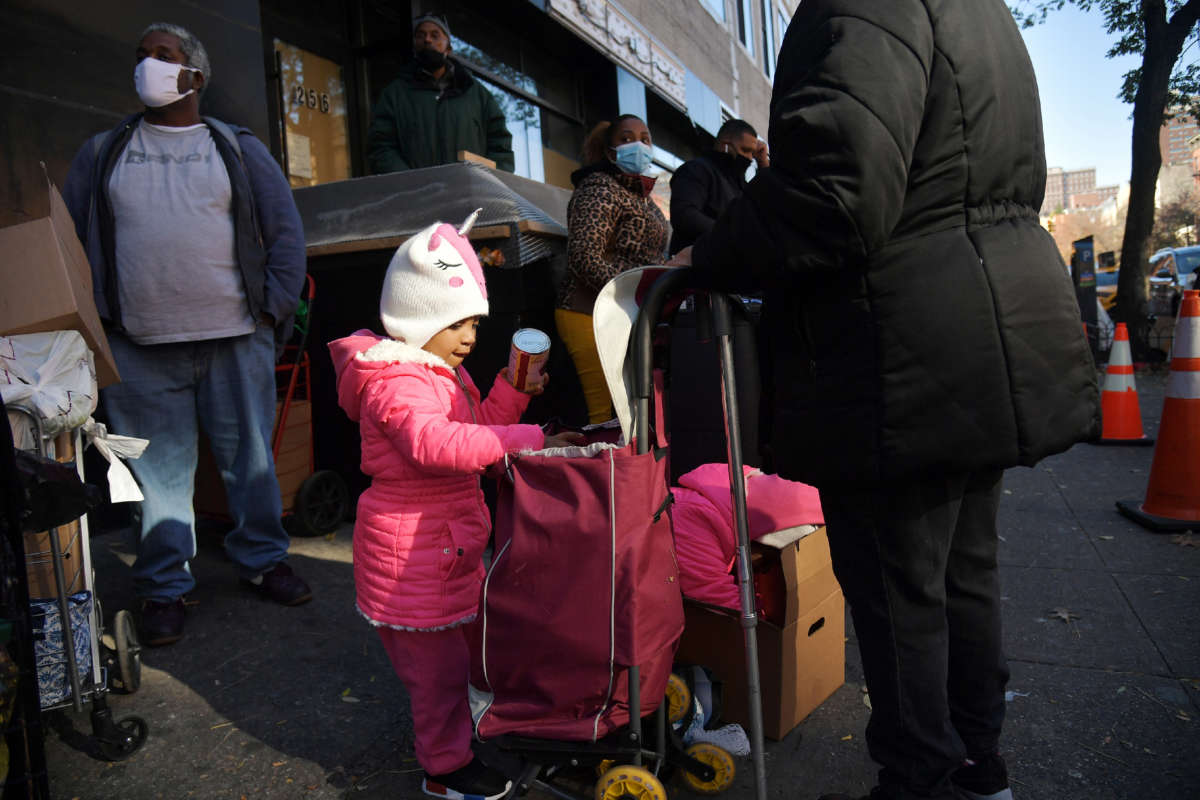The United States is slowly emerging from the COVID-19 economic recession. The unemployment rate has dropped by more than half. People are spending more money now than they did before the pandemic began. Families are paying off their credit card debt again.
Yet these milestones mask an uncomfortable truth: The economic recovery is mostly benefitting white families. New data released by the Census Bureau shows that nearly four in 10 Latino and Black households are having a hard time paying their bills more than a year into the pandemic — double the share of white households, according to the Center for Public Integrity’s analysis of the latest Household Pulse Survey, which covers the last two weeks of April.
About 36% of Latino families said they had a very difficult or somewhat difficult time paying their bills in the previous week, compared with 35% of Black families, 20% of Asian families and 18% of white families.
While these numbers reflect an improvement from previous months, the persistent racial gaps highlight the limits of government aid programs, said Carmen Sanchez Cumming, a research assistant at the Washington Center for Equitable Growth. For one, they don’t address job segregation.
“An important driver of these disparities is that Black and Latinx workers are more likely to be in occupations that have been especially hard hit,” said Sanchez Cumming, whose research has focused on racial inequality in the pandemic economy.
A large number of Black and Latino workers make a living in the leisure and hospitality industry, which has shed nearly 3 million jobs since the pandemic started. Those who didn’t lose their restaurant and hotel jobs often experienced steep pay cuts or saw their work hours reduced. The lost income is one reason so many people of color are struggling to pay their bills, said Sanchez Cumming. Her own research shows that Black women have faced the most challenges.
Congress has spent trillions of dollars to boost the safety net during the slowdown. Lawmakers increased spending on unemployment assistance, handed out stimulus payments and expanded child tax credits. But these policies weren’t designed to reverse decades of structural inequality.
For example, Black and Latino workers were more likely to lose their jobs during the pandemic, but they were also less likely to qualify for unemployment aid because many live in states that have made it harder to access the benefit. Even so, Sanchez Cumming said the economic relief programs have helped and the new survey data shows they’re still needed.
Rep. Gwen Moore (D-WI) made a similar argument during a March hearing before the House Budget Committee.
“Those who were behind before this pandemic have suffered disproportionately,” Moore told her colleagues. She pointed out that the Child Tax Credit lifted 4.3 million people out of poverty in 2018. In March, Congress passed the American Rescue Plan Act, which temporarily doubled the amount of money low-income families can claim per child. Economists say the temporary changes will help reduce poverty among Black families by 42%.
Moore urged her colleagues to make these changes permanent and to target the families that need the most support.
“We should keep doing what is working and build on the [American Rescue Plan] to begin a new conversation about how we help people truly escape poverty,” she said.
Join us in defending the truth before it’s too late
The future of independent journalism is uncertain, and the consequences of losing it are too grave to ignore. To ensure Truthout remains safe, strong, and free, we need to raise $44,000 in the next 6 days. Every dollar raised goes directly toward the costs of producing news you can trust.
Please give what you can — because by supporting us with a tax-deductible donation, you’re not just preserving a source of news, you’re helping to safeguard what’s left of our democracy.
